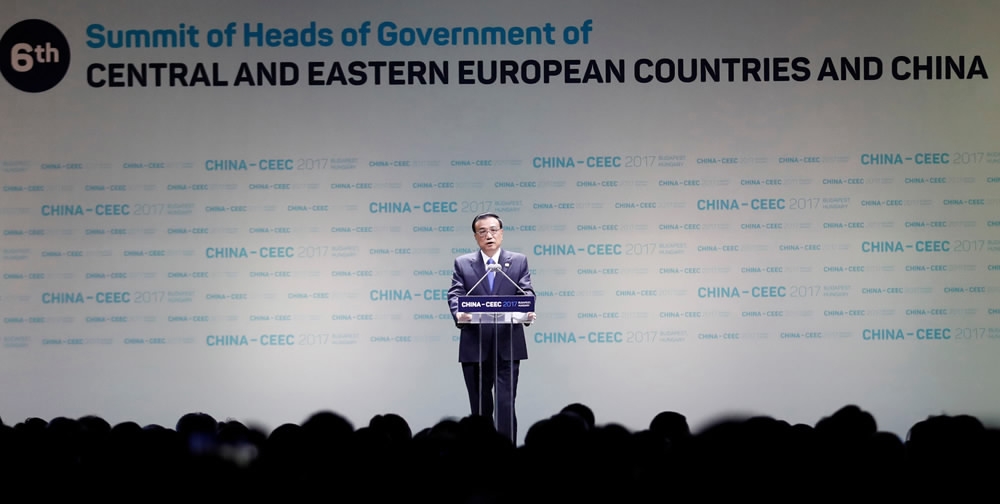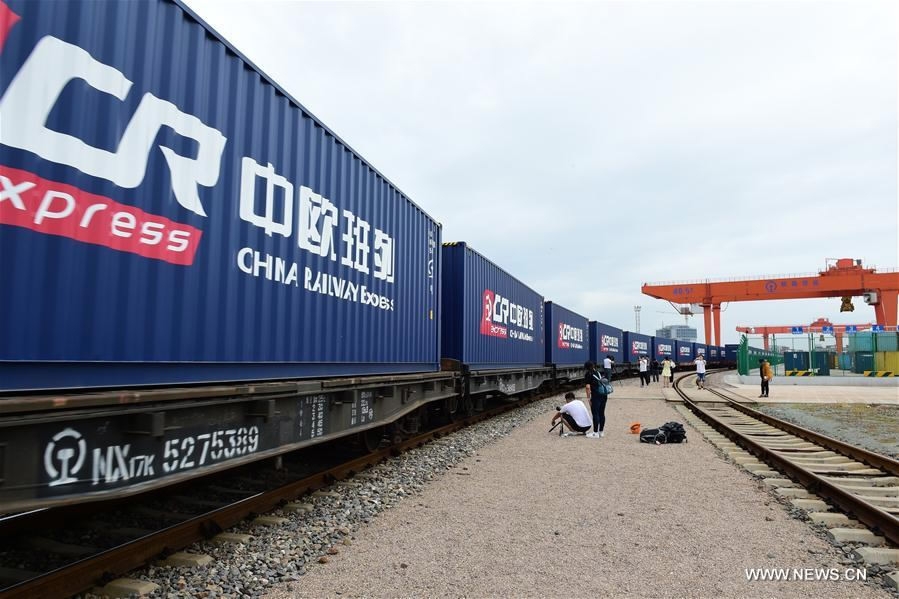
Politics
22:58, 27-Nov-2017
China supports Central, Eastern European countries to join EU
CGTN

China supports the intention of some Central and Eastern European (CEE) countries to join the European Union (EU), Chinese Premier Li Keqiang said in the Hungarian capital Budapest on Monday, adding that the cooperation between China and CEE countries is a "beneficial supplement" to the China-Europe cooperation as a whole.
Premier Li made the remarks in a keynote speech at the opening ceremony of the sixth meeting of heads of government of China and 16 Central and Eastern European Countries (China-CEEC summit).
Eleven of the 16 CEE countries have already joined the EU, while Albania, Bosnia and Herzegovina, Macedonia, Montenegro and Serbia are not EU members.

Chinese Premier Li Keqiang addresses the sixth China-CEEC summit in Budapest, Hungary, November 27, 2017. /Reuters Photo
Chinese Premier Li Keqiang addresses the sixth China-CEEC summit in Budapest, Hungary, November 27, 2017. /Reuters Photo
There have been concerns that the "16+1" cooperation mechanism could affect the internal cohesion of the EU, but Li stressed it will only benefit the integration of Europe.
"China always believes that Europe is a key pillar to drive world peace and development," Li said. "We all want to see a stable and prosperous Europe."
China-CEEC cooperation 'not targeted at third party'
The cooperation between China and CEE countries, developed under the context of globalization and based on the principle of mutual benefit and mutual respect, is not only a supplement to the China-Europe cooperation but also an important part of "healthier and more balanced" globalization, he noted.

Li said the China-CEEC cooperation is "not targeted at any third party, nor does it exclude a third party." On the contrary, the two sides welcome other parties' involvement so that concerted efforts could be made to make globalization more sustainable and balanced, he added, stressing that China-CEEC cooperation is "open" and "inclusive."
The two sides look forward to expanding cooperation in various fields, including finance, agriculture and people-to-people exchanges, he said.
In the next five years, the Chinese government will provide at least 5,000 scholarships to students from CEE countries, said Li.

A Chinese Railway Express cargo train leaving for Prague, the Czech Republic, from Yiwu, east China's Zhejiang Province, September 9, 2017. /Xinhua Photo
A Chinese Railway Express cargo train leaving for Prague, the Czech Republic, from Yiwu, east China's Zhejiang Province, September 9, 2017. /Xinhua Photo
In an earlier speech at the seventh China-CEEC Economic and Trade Forum, also a part of the summit, he announced the establishment of the China-CEEC Inter-Bank Association and the second phase of China-CEE Investment Cooperation Fund.
China also plans to increase imports of agricultural products from CEE countries, according to Li.
He called for synergizing the China-proposed Belt and Road Initiative with the development strategies of CEE countries.
The Belt and Road Initiative, including plans for jointly building the Silk Road Economic Belt and the 21st-Century Maritime Silk Road, was proposed by Chinese President Xi Jinping in 2013 and aims at enhancing regional connectivity and promoting win-win cooperation.
"We see the Chinese president's 'One Belt, One Road' initiative as the new form of globalization which does not divide the world into teachers and students but is based on common respect and common advantages," Hungarian Prime Minister Viktor Orban said at the summit.
This year marks the fifth anniversary of the establishment of the China-CEEC cooperation.
Li arrived in Budapest on Sunday and will pay an official visit to Hungary after the summit.
7347km

SITEMAP
Copyright © 2018 CGTN. Beijing ICP prepared NO.16065310-3
Copyright © 2018 CGTN. Beijing ICP prepared NO.16065310-3